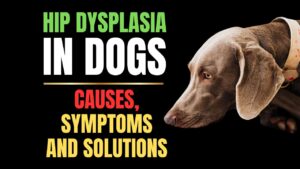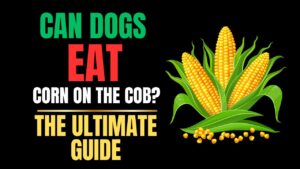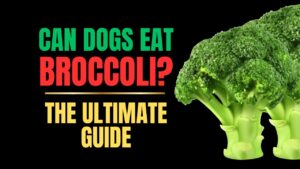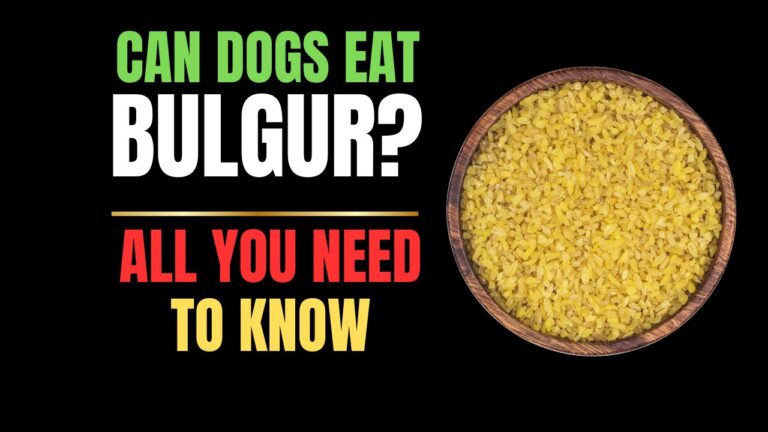
Can Dogs Eat Garlic?
Garlic is a staple in kitchens worldwide, prized for its flavor and potential health benefits for humans. However, this common ingredient poses significant risks to our canine companions that many pet owners are unaware of.
While small amounts of garlic might not immediately harm some dogs, it contains compounds that can cause cumulative damage to red blood cells, leading to potentially life-threatening anemia. The toxicity depends on the amount consumed, the dog's size, and individual sensitivity.
This comprehensive guide covers everything you need to know about garlic safety for dogs, from understanding the toxic compounds to recognizing symptoms of poisoning and implementing safe cooking practices. Whether you're preparing homemade dog food or simply want to keep your kitchen safe, this information is essential for every pet owner.
Introduction
Garlic (Allium sativum) belongs to the Allium family, which also includes onions, chives, and leeks. All members of this plant family contain compounds that can be toxic to dogs, with garlic being one of the most potent.
The History of Garlic Toxicity
Garlic's toxicity to dogs was not widely recognized until the late 20th century when veterinary researchers began documenting cases of hemolytic anemia linked to Allium consumption. While garlic has been used in traditional medicine for centuries and some holistic practitioners still recommend it for its purported health benefits, modern veterinary science has established that the risks far outweigh any potential benefits for dogs. The toxic compounds in garlic can cause oxidative damage to red blood cells, leading to their destruction and potentially life-threatening anemia.
The Short Answer
No, dogs should not eat garlic in any form. While the toxicity level depends on the amount consumed and the dog's size, all forms of garlic pose risks. Even small amounts can cause cumulative damage over time, and larger quantities can lead to severe anemia requiring emergency veterinary care.
| Garlic Form | Safety Level | Key Considerations |
|---|---|---|
| Raw Garlic | Dangerous | Highest concentration of toxic compounds |
| Cooked Garlic | Dangerous | Toxins not destroyed by cooking |
| Garlic Powder | Extremely Dangerous | Highly concentrated, small amounts toxic |
| Garlic Supplements | Dangerous | Concentrated forms, unpredictable dosing |
Garlic Toxicity Explained
Understanding the specific toxic compounds in garlic helps explain why this common ingredient is dangerous for dogs and what happens when they ingest it.
Thiosulfates
Primary Toxins
Garlic contains organosulfur compounds that convert to thiosulfates in the body. These compounds cause oxidative damage to red blood cells, leading to Heinz body formation and hemolytic anemia.
Blood cell damage
N-propyl Disulfide
Secondary Toxin
This compound inhibits glucose-6-phosphate dehydrogenase, an enzyme that protects red blood cells from oxidative damage. Without this protection, cells become fragile and rupture.
Enzyme inhibition
Allicin
Activated Compound
When garlic is crushed or chopped, alliin converts to allicin, which then breaks down into various sulfur-containing compounds responsible for both garlic's medicinal properties and its toxicity.
Conversion product
Relative Toxicity of Allium Plants
The Cumulative Effect
Garlic toxicity is often cumulative, meaning that small amounts consumed regularly can build up over time and eventually cause clinical signs of poisoning. This is particularly dangerous because owners might not connect occasional garlic exposure with the anemia that develops weeks or months later. The toxic dose is approximately 15-30 grams of garlic per kilogram of body weight, but individual sensitivity varies. Japanese breeds like Akitas and Shiba Inus are particularly susceptible, as are dogs with pre-existing conditions like glucose-6-phosphate dehydrogenase deficiency.
How Cooking Affects Toxicity
Unlike some plant toxins, garlic's dangerous compounds are not destroyed by cooking:
- Raw Garlic: Highest concentration of toxic precursors
- Cooked Garlic: Toxins remain active, concentration may reduce slightly
- Powdered Garlic: Highly concentrated, most dangerous form
- Garlic Oil: Concentrated toxins in lipid-soluble form
Dangerous Forms of Garlic
All forms of garlic pose risks to dogs, but some are particularly dangerous due to concentration or preparation methods.
Garlic Powder - Extremely Dangerous
Garlic powder is highly concentrated, making it the most dangerous form. Just one teaspoon of garlic powder can be toxic to a small dog.
Raw Garlic - Highly Toxic
Raw garlic contains the highest concentration of toxic precursors. When crushed or chopped, these convert to the active toxic compounds.
Garlic Supplements - Unpredictable Risk
Garlic supplements, pills, or capsules contain concentrated forms of garlic with unpredictable dosing. These should never be given to dogs.
Cooked Garlic - Still Dangerous
Cooking doesn't destroy the toxic compounds in garlic. Foods cooked with garlic retain their toxicity, even if the garlic pieces are removed.
| Garlic Form | Toxicity Level | Toxic Dose (per kg body weight) |
|---|---|---|
| Garlic Powder | Extremely High | 1.25 mL (1/4 tsp) per 5 kg |
| Raw Garlic Cloves | Very High | 5 g (1 clove) per 10 kg |
| Cooked Garlic | High | 15-30 g per kg |
| Garlic Supplements | Variable | Dependent on concentration |
Hidden Garlic in Foods
Many prepared foods contain hidden garlic that owners might not recognize as dangerous. These include baby food, canned soups, broths, sauces, marinades, seasoned meats, and many human snacks. Garlic is often listed on ingredient labels as "natural flavors," "spices," or "seasonings," making it difficult to identify. When sharing human food with dogs or using commercial products, always check labels carefully and when in doubt, assume the product contains garlic and avoid feeding it to your dog.
Common Foods Containing Garlic
Many human foods contain garlic, posing hidden dangers to dogs:
- Pizza & Pasta Sauces: Often contain significant garlic
- Seasoned Meats: Sausages, meatballs, marinated meats
- Chinese & Asian Foods: Frequently use garlic in preparation
- Salad Dressings: Many vinaigrettes contain garlic
- Bread & Crackers: Some varieties include garlic powder
- Baby Food: Often contains garlic for flavor
- Frozen Dinners: Typically seasoned with garlic
Symptoms of Garlic Poisoning
Recognizing the signs of garlic poisoning is crucial for timely intervention. Symptoms may appear within hours or be delayed for several days.
Gastrointestinal Symptoms
Early Signs
Initial symptoms often include vomiting, diarrhea, abdominal pain, loss of appetite, and excessive drooling. These typically appear within 24 hours of ingestion.
First 24 hours
Anemia Symptoms
Blood Cell Destruction
As red blood cells are destroyed, dogs may show weakness, lethargy, pale gums, rapid breathing, and elevated heart rate. These signs typically appear 1-5 days after ingestion.
Days 1-5
Severe Complications
Advanced Poisoning
In severe cases, dogs may develop jaundice (yellowing of skin and eyes), dark urine, collapse, or organ failure due to severely reduced oxygen-carrying capacity.
Emergency situation
Complete Symptom Checklist
If your dog has ingested garlic, watch for these symptoms:
- Early Symptoms (1-24 hours):
- Nausea and drooling
- Vomiting, possibly with garlic odor
- Diarrhea, which may contain blood
- Abdominal pain or tenderness
- Loss of appetite
- Lethargy or weakness
- Anemia Symptoms (1-5 days):
- Pale or white gums
- Rapid breathing or panting
- Elevated heart rate
- Weakness or collapse
- Dark urine (red or brown)
- Jaundice (yellow gums, eyes, skin)
- Severe Symptoms (3-7 days):
- Extreme weakness or inability to stand
- Rapid, shallow breathing
- Collapse or loss of consciousness
- Seizures
- Organ failure
Don't Wait for Symptoms
If you know or suspect your dog has ingested garlic, don't wait for symptoms to appear before seeking veterinary care. The damage to red blood cells begins immediately after ingestion, and early intervention significantly improves outcomes. By the time clinical signs of anemia appear, significant red blood cell destruction has already occurred. Contact your veterinarian or animal poison control immediately if your dog has eaten any amount of garlic, regardless of whether symptoms are present.
Emergency Response: If Your Dog Eats Garlic
Quick, appropriate action is crucial if your dog ingests garlic. Knowing what to do can significantly improve outcomes.
Immediate Steps to Take
| Action | Why It's Important | What Not to Do |
|---|---|---|
| Contact Your Vet Immediately | Early intervention prevents complications | Don't wait to see if symptoms develop |
| Identify What Was Eaten | Helps determine toxicity level | Don't guess - identify the garlic form |
| Estimate Amount Ingested | Helps vet assess severity | Don't downplay the amount consumed |
| Note the Time of Ingestion | Helps predict symptom timeline | Don't assume you'll remember details |
Information to Provide Your Veterinarian
When you contact your veterinarian, be prepared to provide:
- Your dog's breed, age, weight, and any pre-existing health conditions
- What form of garlic was consumed (raw, powder, cooked, etc.)
- How much was ingested (estimate if unsure)
- When the ingestion occurred
- Any symptoms you've observed
- What other foods were consumed with the garlic
Veterinary Treatment Protocols
Depending on the amount ingested and timing, treatment may include:
- Decontamination: Induced vomiting if ingestion was recent
- Activated Charcoal: To prevent further absorption of toxins
- Blood Transfusion: For severe anemia
- Supportive Care: IV fluids, oxygen therapy, medications
- Monitoring: Blood work to assess red blood cell counts
- Hospitalization: For severe cases requiring intensive care
Animal Poison Control Resources
If you can't reach your veterinarian, contact an animal poison control center immediately. These services are available 24/7 and can provide specific guidance for your situation. The ASPCA Animal Poison Control Center can be reached at (888) 426-4435, and the Pet Poison Helpline is available at (855) 764-7661. Note that these services typically charge a consultation fee, but the cost is minimal compared to emergency veterinary treatment and can provide life-saving guidance.
Safe Cooking Practices for Dog Owners
If you prepare food for your dog or share your kitchen with them, these practices can help prevent accidental garlic exposure.
Safe Food Preparation Guidelines
| Practice | Safety Level | Implementation Tips |
|---|---|---|
| Separate Preparation Areas | Highly Recommended | Use different cutting boards, utensils for dog food |
| Secure Storage | Essential | Store garlic in sealed containers in secure cabinets |
| Clean Surfaces Thoroughly | Critical | Wash all surfaces after garlic preparation |
| Educate Household Members | Highly Recommended | Ensure everyone knows garlic dangers |
Dangerous Practices to Avoid
| Practice | Risk Level | Potential Dangers |
|---|---|---|
| Sharing Human Food | High Risk | Many human foods contain hidden garlic |
| Using Same Utensils | Moderate Risk | Cross-contamination from garlic residue |
| Improper Storage | High Risk | Dogs may access and eat garlic directly |
| Assuming Small Amounts Safe | High Risk | Cumulative toxicity can cause delayed poisoning |
The Importance of Proper Cleanup
Garlic residue on cutting boards, countertops, or utensils can pose risks to curious dogs who might lick these surfaces. The oils and juices from garlic contain concentrated toxic compounds that can be transferred even in tiny amounts. After preparing food with garlic, thoroughly wash all surfaces with soap and hot water. Consider using separate color-coded cutting boards for foods containing Allium vegetables to prevent cross-contamination. This simple practice can significantly reduce the risk of accidental exposure for your dog.
Kitchen Safety Checklist
- Store garlic in sealed containers in secure cabinets or drawers
- Use separate cutting boards for Allium-containing foods
- Wash hands thoroughly after handling garlic
- Clean all surfaces that contacted garlic immediately after use
- Never leave garlic or garlic-containing foods unattended
- Dispose of garlic peels and scraps in sealed trash containers
- Educate all family members and visitors about the dangers
- Keep dogs out of the kitchen during food preparation
- Check ingredient labels on all foods before sharing with dogs
Safe & Healthy Alternatives to Garlic
If you want to add flavor to your dog's food or provide health benefits, these alternatives are much safer than garlic.
Flavorful Herb Alternatives
| Herb | Preparation | Benefits |
|---|---|---|
| Parsley | Fresh, finely chopped | Fresh breath, antioxidants, vitamins A, C, K |
| Basil | Fresh, chopped | Antioxidants, anti-inflammatory properties |
| Oregano | Dried or fresh, small amounts | Antioxidants, antimicrobial properties |
| Thyme | Dried or fresh, small amounts | Antioxidants, respiratory health support |
| Rosemary | Fresh, small amounts | Antioxidants, cognitive support |
Nutritional Alternatives
These foods provide health benefits without the risks of garlic:
- Pumpkin: Digestive health, fiber, vitamins A and C
- Blueberries: Antioxidants, cognitive support
- Sweet Potatoes: Beta-carotene, fiber, vitamins
- Carrots: Dental health, vitamin A, low calorie
- Green Beans: Fiber, vitamins, weight management
Introducing New Foods Safely
When introducing any new food to your dog's diet, start with small amounts to ensure they tolerate it well. Some dogs may have sensitive stomachs or food allergies. Always introduce one new food at a time so you can identify any that cause issues. Remember that treats, including herbs and vegetables, should make up no more than 10% of your dog's daily caloric intake. The majority of their nutrition should come from a balanced, complete dog food appropriate for their age, size, and health status.
Dog-Friendly Flavorful Recipes
These simple recipes provide safe, healthy alternatives to garlic-flavored foods:
Herb-Infused Dog Treats
- Ingredients: 2 cups whole wheat flour, 1/2 cup parsley (finely chopped), 1 egg, 1/2 cup pumpkin puree
- Instructions: Mix ingredients, roll out dough, cut shapes, bake at 350°F for 20-25 minutes
- Serving: 1-2 treats daily for medium dogs
Savory Bone Broth
- Ingredients: Beef bones, water, 1 carrot, 1 celery stalk, small bunch parsley
- Instructions: Simmer bones with vegetables for 12-24 hours, strain, add parsley at end
- Serving: 1/4 cup over food or as occasional treat
Frequently Asked Questions
While a single tiny piece of garlic is less likely to cause immediate severe poisoning in a large, healthy dog, you should still contact your veterinarian for guidance. The risk depends on your dog's size, the amount consumed, and whether they have any underlying health conditions. Small dogs and certain breeds (like Akitas and Shiba Inus) are more sensitive. Additionally, garlic toxicity can be cumulative, meaning small amounts consumed regularly can build up over time. Your veterinarian can advise you on whether to monitor at home or bring your dog in for evaluation.
Yes, certain factors can increase a dog's susceptibility to garlic toxicity. Japanese breeds like Akitas and Shiba Inus are particularly sensitive due to genetic factors affecting their red blood cells. Puppies, senior dogs, and those with pre-existing health conditions (especially anemia or blood disorders) are also more vulnerable. Dogs with glucose-6-phosphate dehydrogenase deficiency have significantly increased risk, as this enzyme helps protect red blood cells from oxidative damage. However, no dog is immune to garlic toxicity, and all garlic ingestions should be taken seriously regardless of the dog's breed or health status.
Symptoms of garlic poisoning can appear at different times depending on the amount consumed. Gastrointestinal symptoms like vomiting and diarrhea may appear within hours of ingestion. Signs of anemia typically develop 1-5 days after ingestion as the body destroys damaged red blood cells. In cases of chronic, low-level exposure, symptoms might not appear for weeks or months until enough red blood cells have been damaged to cause clinical anemia. This is why it's crucial not to wait for symptoms to appear before seeking veterinary advice if you know your dog has ingested garlic.
In severe cases, garlic poisoning can cause permanent organ damage or be fatal if not treated promptly. The destruction of red blood cells reduces oxygen delivery to tissues, which can damage organs like the kidneys, liver, and heart. However, with prompt veterinary treatment, most dogs recover completely without permanent effects. The bone marrow can regenerate new red blood cells to replace those destroyed, typically within a few weeks. The risk of permanent damage is highest when large amounts are consumed, when treatment is delayed, or when the dog has underlying health conditions.
This is a dangerous myth with no scientific basis. While some holistic websites and books recommend garlic for flea control, there is no credible evidence that it works, and the risks far outweigh any potential benefits. The amount of garlic needed to potentially affect fleas would be toxic to dogs. Additionally, modern veterinary science has safe, effective flea prevention products that don't pose risks to your dog's health. Always consult your veterinarian for appropriate flea and tick prevention rather than using unproven and potentially dangerous home remedies.
If you suspect but aren't certain your dog has eaten garlic, it's better to err on the side of caution. Contact your veterinarian or an animal poison control center for guidance. Try to find evidence of what was eaten - look for missing food items, chewed garlic cloves, or empty containers. Monitor your dog closely for any symptoms and be prepared to provide your vet with your dog's weight, any symptoms you've noticed, and the time you first suspected ingestion. When in doubt, assume the worst and seek professional advice.
No, puppies should never have any amount of garlic. Puppies are actually more susceptible to garlic toxicity than adult dogs because they have smaller body mass and their bodies are still developing. Their red blood cells may be more vulnerable to oxidative damage, and their organs are less able to process toxins. Additionally, puppies have specific nutritional needs for growth, and any potential benefits from garlic are far outweighed by the risks. Never feed garlic to puppies in any form, and be especially vigilant about keeping garlic and garlic-containing foods away from curious puppies.
Free Printable "Garlic Safety for Dogs" Guide
To help you quickly reference garlic safety information and emergency procedures, we've created this comprehensive guide.
How to Use This Guide
This printable guide provides a quick reference for garlic safety information, emergency contact numbers, and prevention tips. Print it and keep it on your refrigerator or in your pet emergency kit for easy reference.
Garlic Safety Quick Reference Chart
| Garlic Form | Safety Level | Key Safety Notes |
|---|---|---|
| Raw Garlic | Dangerous | Highest toxin concentration, never feed |
| Garlic Powder | Extremely Dangerous | Highly concentrated, small amounts toxic |
| Cooked Garlic | Dangerous | Toxins not destroyed by cooking |
| Garlic Supplements | Dangerous | Concentrated forms, unpredictable dosing |
| Foods with Garlic | Dangerous | Assume all contain toxic amounts |
Emergency Contact Information Template
Print and fill out this emergency information to keep handy:
- Primary Veterinarian: ___________________ Phone: ___________________
- Emergency Veterinary Clinic: ___________________ Phone: ___________________
- ASPCA Animal Poison Control: (888) 426-4435 (Note: fee may apply)
- Pet Poison Helpline: (855) 764-7661 (Note: fee may apply)
- Pet Insurance Information: Provider: ___________________ Policy #: ___________________
Conclusion: Final Verdict on Garlic for Dogs
Garlic represents a significant toxicity risk to dogs, with the potential to cause serious health issues including gastrointestinal distress and life-threatening anemia. While the toxicity depends on the amount consumed and the dog's size, all forms of garlic pose risks and should be avoided entirely.
Remember that prevention is significantly easier and safer than emergency treatment. Secure storage of garlic and garlic-containing foods, proper kitchen hygiene, and educating family members about the dangers can help keep your dog safe. If you suspect your dog has ingested garlic, contact your veterinarian immediately - don't wait for symptoms to appear, as the damage to red blood cells begins immediately after ingestion.
With proper precautions and awareness, you can safely include garlic in your family meals while protecting your canine companion. The small effort required to keep garlic away from your dog is well worth the peace of mind knowing you've prevented a potential poisoning emergency.
We'd love to hear about your experiences with keeping your dog safe around potentially toxic foods. Share your tips or questions in the comments below or tag us on social media with photos of your dog enjoying safe, healthy treats!
In the Spotlight
About the Author
Megan Sprinkle
Author
Dr. Megan Sprinkle, DVM, DACVIM (Nutrition) — Veterinarian Nutritionist, Consultant, and Podcaster passionate about helping dogs thrive through science-based nutrition. Auburn University alumna.











